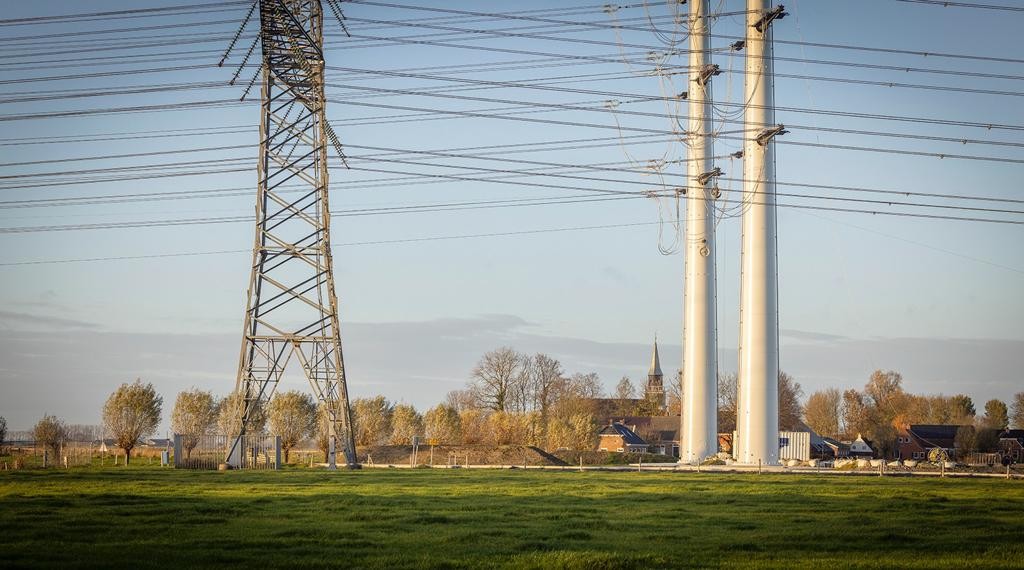Reviving the language of landscape

The previous post in the RESPONSUS (Responsibility, Language and Communication) series about the crucial role language plays in shaping sustainability put the UN’s communication about its own Sustainable Development Goals (SDGs) under scrutiny. This week, we invite you to imagine Life on Land (SDG15) in The Netherlands in the not-too-distant past and reflect on the close interrelation of linguistic diversity with biodiversity. Can the restoration and protection of cultural and natural landscapes benefit from the preservation of equally endangered vocabularies?
In his epic poem Mei (May, 1889—famous for its opening line ‘Een nieuwe lente en een nieuw geluid’ / ‘A new-born springtime and a new-born sound’), the Dutch poet Herman Gorter sent his title heroine on ‘a magical journey’ in the Low Countries. She traversed an enchanting landscape where the scent of carnations filled the air and a vine shrouded a threshing barn. Amidst the buzzing of bees and the singing of larks and nightingales, you could look for elderwood to carve a whistle from. While playing a tune, you could watch calves galloping playfully through a pasture from behind a hawthorn hedgerow.
By the end of summer the mulberry coloured blood red next to an old brood wall.
Needless to say, the setting in which Gorter placed his protagonist was a poetic creation. Yet a biologist friend informs me that The Netherlands during Gorter’s time, while shaped partly by human hands, must actually have been an exceptionally biodiverse paradise, where due to a favourable mix of low human presence and modest pre-industrial land use countless plants and animals felt at home. Soon after, however, progress struck hard, subjecting the Low Countries to a dramatic makeover.
During the past century, the diverse and species-rich landscape in which May experienced her magical journey has been—to quote writer Koos van Zomeren—‘reduced to a spatial construct in which people make and spend money’ which is virtually uninhabitable for life forms that do not fit into an agro-industrial revenue model. The countryside is largely inaccessible and increasingly ‘unreadable’ to us, its human inhabitants. Author Willem van Toorn points to the intangible loss we suffer when our surroundings are stripped of elements that remind us ‘that there is a past, that people lived in that past who had to deal with the world just like us.’ We have been deprived of the opportunity to grow a sense of place.
The collective amnesia that occurs after drastic transformations of the living environment is nowadays referred to as ‘shifting baseline syndrome’ (French: amnésie générationelle; Dutch: natuuramnesie). The shifted baseline—a ryegrass desert, factory farm or distribution centre occupies the space where once godwits, lapwings, curlews and redshanks raised their chicks—forms a ‘new normal’ that precludes imagining the world our ancestors shared with a plethora of other creatures.
Another consequence of this amnesia: if you’ve never heard a lark or seen a mulberry bloom, you probably will not care so much that the last lark nests are being chopped up in mowers or a mulberry tree disappears in a wood chipper. At the same time, the vocabulary that our ancestors used when speaking about their surroundings is falling into disuse, giving way to a simplified generic language in which larks, godwits and redshanks are simply ‘birds’ and a hawthorn hedge is a random ‘shrubbery’.
There is a growing awareness of the ‘close interrelation of linguistic and cultural diversities with biodiversity’, as stated in a recent article surveying successful cases of ‘language reclamation’ by indigenous communities whose languages—storehouses for biocultural and ecological knowledge—were threatened with extinction along with the destruction of their living environment. Let’s not overlook the fact that in Western societies, too, impoverishment of nature and landscapes is accompanied by lexical obsolescence and word loss—and conversely, that nature and landscape protection and restoration should go hand in hand with reviving and educating the language in which we can communicate about them.
With this premise, British nature writer Robert Macfarlane has catalogued ancient and nearly extinct words that refer to landscape and natural elements with extreme precision and nuance. If we relearn, use and pass on such words, we can learn and teach to perceive, understand, appreciate and protect the things and beings they refer to. As long as traces of them can still be found…
We hope you are enjoying the mini-series about language and sustainability of the RESPONSUS group. If you are in Groningen on May 16 2023, you can meet us at the RESPONSUS launch event.

